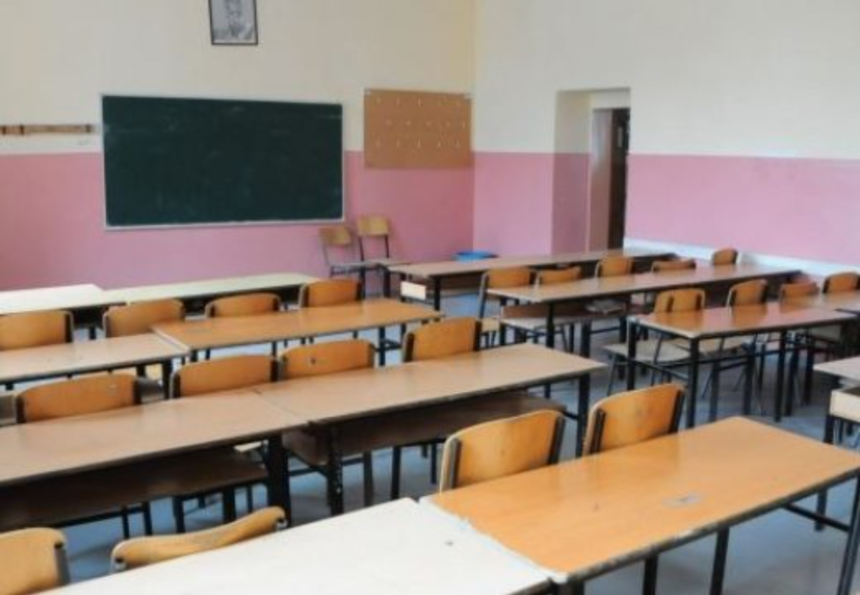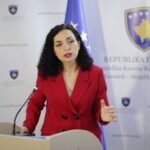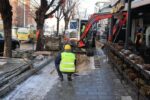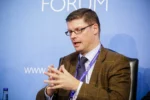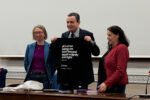At 50 years old, Drita, a woman from central Kosovo, has returned to the classroom to fulfill a long-held dream that she never thought would come true. Three years ago, she enrolled in a non-formal education program at the “Emin Duraku” Primary School in Prishtina, and today, at 53, she is a student in the first grade.
“I never would have believed it if someone had told me years ago that I would go to school. But here I am… a miracle,” says Drita, reflecting on her journey.
The “Emin Duraku” School is the only public institution in the capital offering non-formal education for adults, ranging from 18 years old to over 50. Students complete first to fifth grade within a single school year, and the following years last about 18 weeks. This program helps adults who, for various reasons, were unable to finish primary school earlier in life.
A Dream Deferred
Drita’s dream of education started back in the 1980s, watching her cousin go to school. As a child, she often visited her cousin, excitedly watching her prepare her schoolbag and wondering what it would be like to have the same opportunity. However, due to the large size of her family and limited financial resources, Drita was never able to attend school at a young age.
“It was a dream I carried with me all these years, and when I heard about the chance for non-formal education, I didn’t hesitate,” Drita explains.
Balancing her family responsibilities and work as a cleaner, Drita began traveling several kilometers every day from her home to attend classes in Prishtina. While biology quickly became one of her favorite subjects, she admits that math is still a challenge. “It’s tough to solve problems, but my teachers are always there to help me,” Drita adds with a smile.
Flora’s Return to Education
Drita is not alone in her pursuit of education. Flora, who is 34, has a similar story. She dropped out of school at the age of 14, after her parents, worried about her safety, forced her to quit. Flora had been attending school in a nearby village, but the long journey and lack of other girls her age made it a difficult and dangerous task.
“I started sixth grade, but my parents were concerned about my safety, and I was forced to leave school,” recalls Flora, who now attends the ninth grade in the non-formal program.
For years, Flora felt unfulfilled and continued to dream of returning to education. After attending some sewing courses and finding a job in a design studio, she still felt something was missing. “Education has always been my passion, and I kept expressing my desire to continue my studies,” she says.
In 2022, Flora finally rejoined the educational program for adults at “Emin Duraku.” “I missed the benches of the classroom, the nostalgia, the emotions,” she says with a smile.
A Community of Learners
In the classroom, Drita and Flora are not alone. They are part of a growing group of adult learners who have found a second chance at education. According to Visar Osmani, the director of the school, non-formal education has been offered for almost 20 years and continues to grow in popularity. “Women make up the majority of the participants every year,” Osmani notes.
Many of the students, like Flora and Drita, faced financial struggles or other barriers that prevented them from completing their formal education when they were younger. However, the non-formal education program, which has been offered free of charge since 2005, has become a lifeline for these individuals.
The Ministry of Education, Science, Technology, and Innovation (MASHTI) reports that non-formal education for adults is available in five municipalities: Pristina, Mitrovica, Prizren, Gjilan, and Pejë. This year, around 70 adults are enrolled in the program.
The Impact of Non-Formal Education
Afërdita Jaha, an official with MASHTI, explains that non-formal education aims to provide a second chance for those who did not finish their mandatory primary education. “It offers opportunities for integration into both the educational and professional sectors,” Jaha says.
The need for non-formal education is particularly pressing in Kosovo, where many citizens, especially older generations, did not complete their schooling due to socio-political reasons, particularly before the 1998/99 war.
According to the 2024 population census, Kosovo’s illiteracy rate has decreased from 3.38% in 2011 to 2.27%. However, more than 36,000 people remain illiterate, and many of them are elderly. Despite the challenges of age, Drita and Flora are proof that it’s never too late to learn.
Drita concludes, “If only I were a bit younger, I would have continued my education to become a teacher, but age… age…” Yet, her determination to learn and achieve her dreams remains unshaken.

